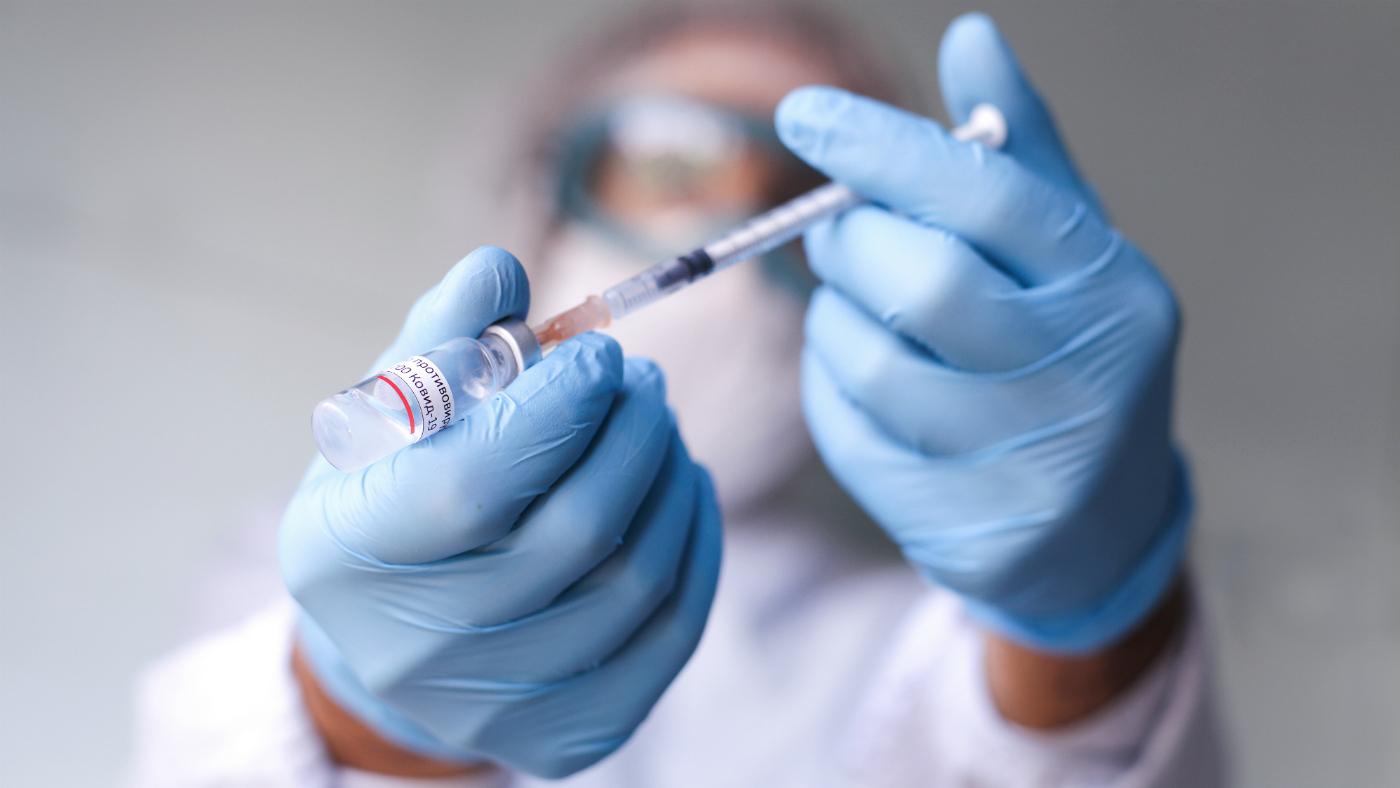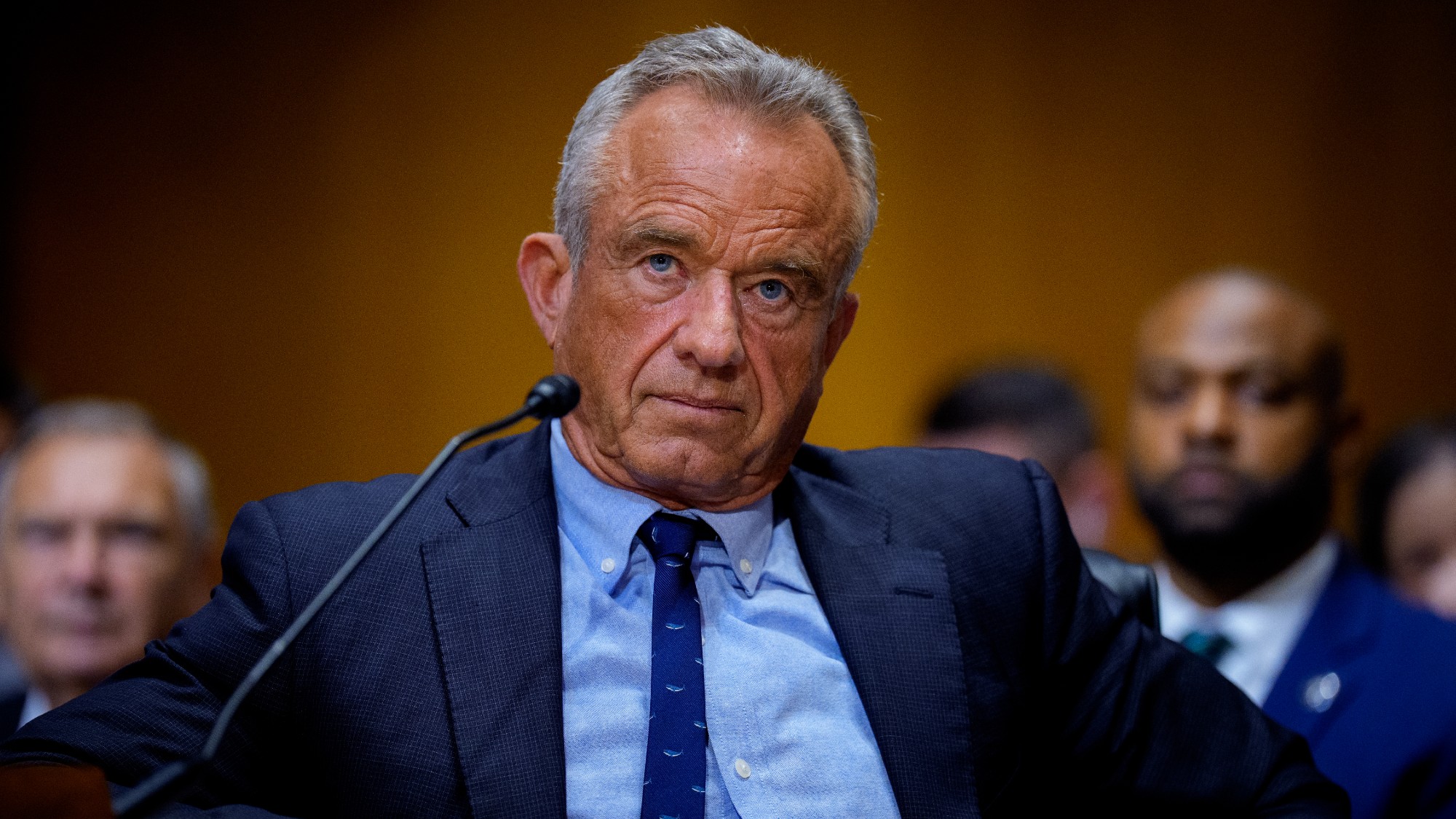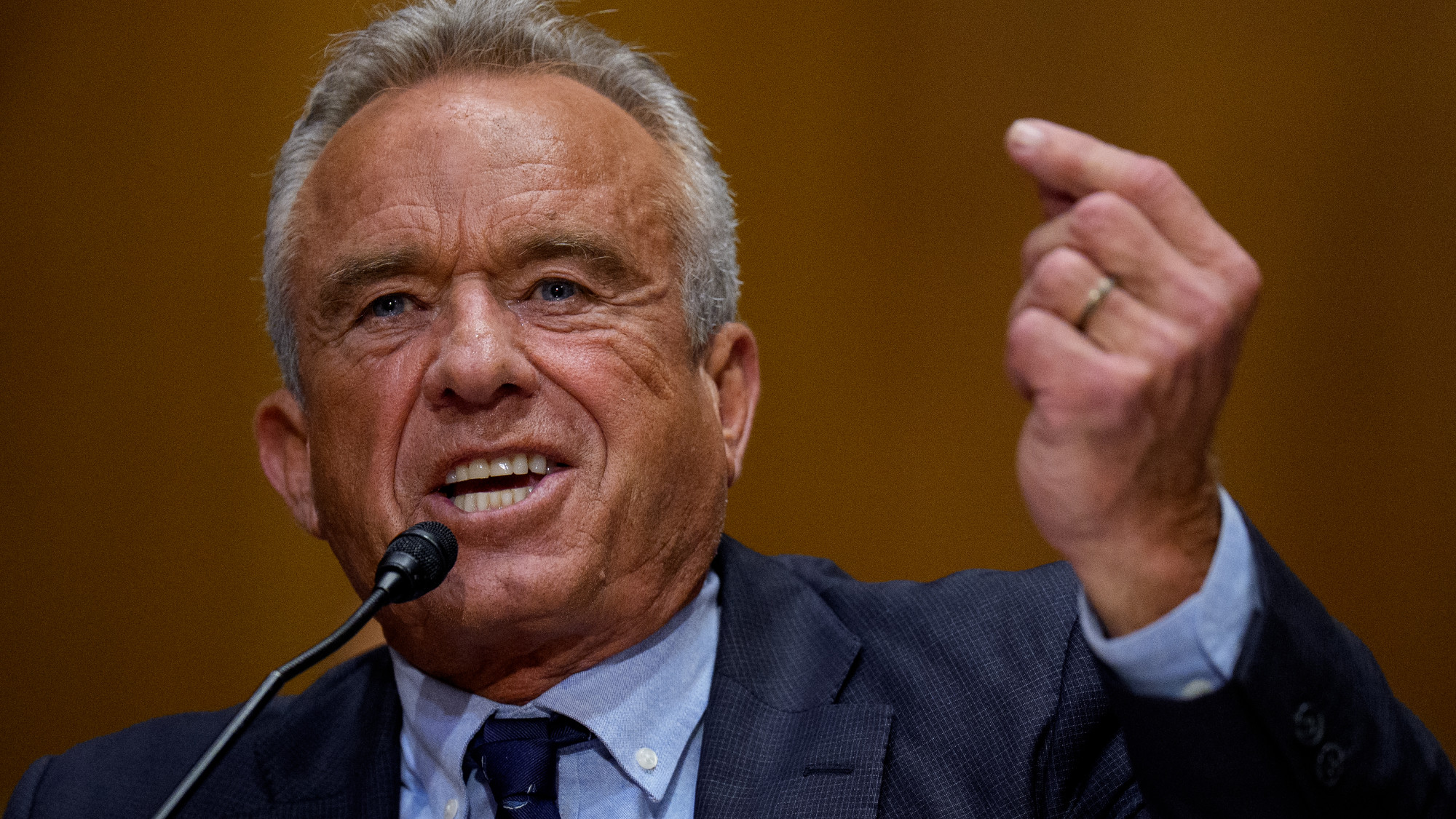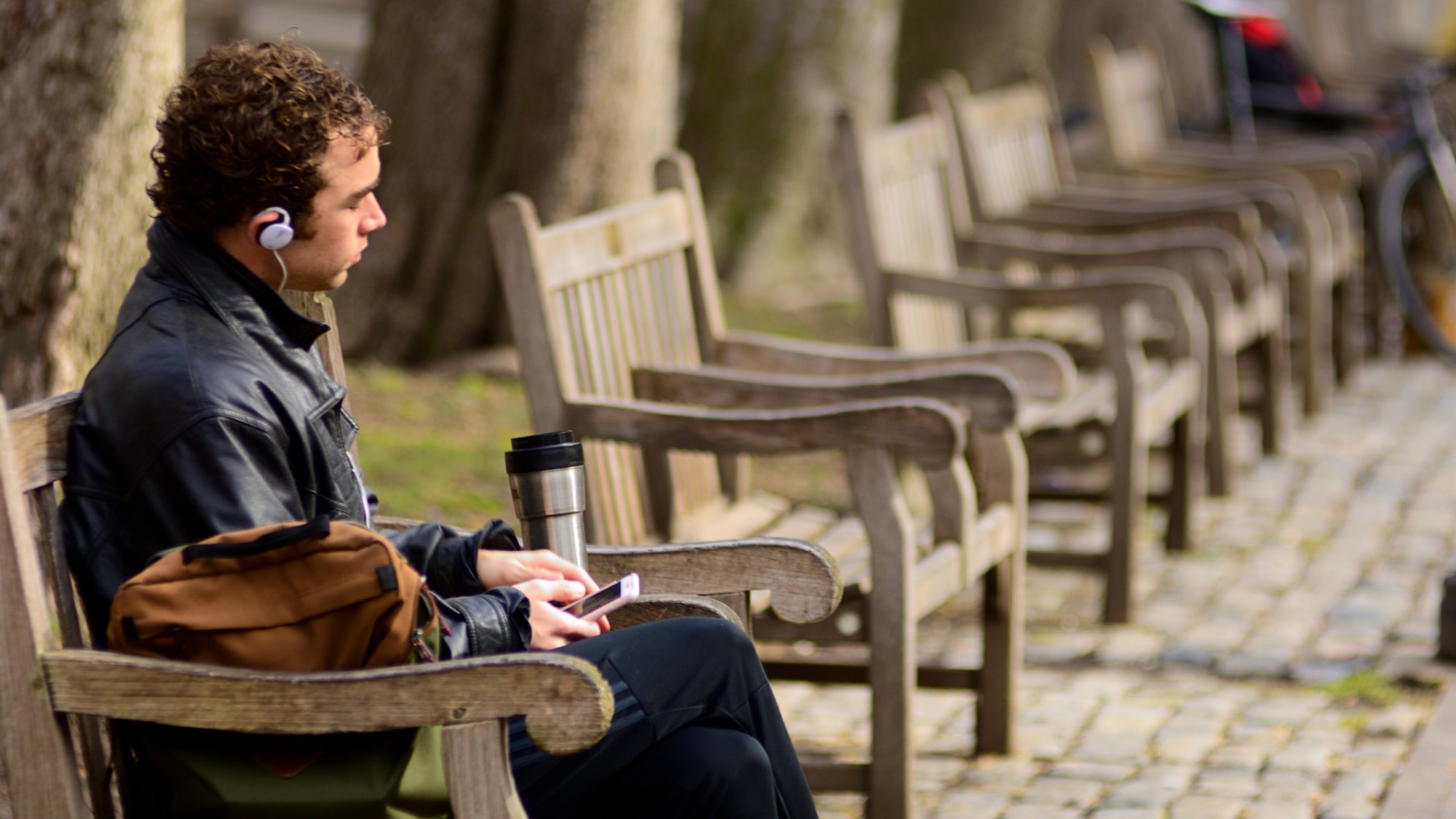Coronavirus: Russia set for mass vaccination campaign - but why is WHO urging caution?
Moscow says mass production of the drug will begin next month following completion of clinical trials

A free daily email with the biggest news stories of the day – and the best features from TheWeek.com
You are now subscribed
Your newsletter sign-up was successful
International health experts are calling for caution as Russia prepares to launch a mass vaccination campaign to combat Covid-19.
Health Minister Mikhail Murashko announced this week that the Gamaleya Institute, a state-run research facility in Moscow, had completed clinical trials of a coronavirus vaccine and is on course to secure regulatory approval. “We plan wider vaccinations for October,” Murashko said, adding that doctors and teachers would be the first to be immunised.
But many scientists are concerned about what the BBC describes as Russia’s “fast-track approach”, with the World Health Organization (WHO) stressing that a blanket cure for coronavirus is extremely unlikely at this stage. So what exactly has Russia devised and why are experts sceptical?
The Week
Escape your echo chamber. Get the facts behind the news, plus analysis from multiple perspectives.

Sign up for The Week's Free Newsletters
From our morning news briefing to a weekly Good News Newsletter, get the best of The Week delivered directly to your inbox.
From our morning news briefing to a weekly Good News Newsletter, get the best of The Week delivered directly to your inbox.
What exactly is Russia saying?
The Russian government “claims to have stolen a march on dozens of global rivals – including the US and UK – in the race to produce a viable coronavirus vaccine”, says The Guardian.
Following reports last month that Kremlin-linked figures had been given access to an early coronavirus vaccine, officials now claim that the drug trialled by the Gamaleya Institute “is about to pass state registration”, The Moscow Times reports.
“We are very much counting on starting mass production in September,” Industry Minister Denis Manturov told Russian news agency Tass.
A free daily email with the biggest news stories of the day – and the best features from TheWeek.com
How would the vaccine work?
The Gamaleya drug is a so-called “viral vector vaccine, meaning it employs another virus to carry the DNA encoding the needed immune response into cells”, The Moscow Times explains.
The adenovirus-based vaccine works by administering a gene from Sars-CoV-2, the novel coronavirus that causes Covid-19, into the body. Cells then “read it and make coronavirus spike proteins, with the idea being to trick the body into believing it has already been infected”, The Irish Post reports.
“These self-made spike proteins then theoretically train the body to detect and terminate any real Sars-CoV-2 infections before the virus takes hold.”
Why is the WHO concerned?
The “speed at which Russia is progressing through trials has caused concern that the country may be putting prestige ahead of public safety”, says Metro, which reports that state television “has in recent months promoted the idea that Russia is ‘winning’ the vaccination race”.
According to the WHO, at least four vaccines are in phase three of human trials - the final stage before submitting for approval. Three of the drugs on this short list were developed in China, and the other in the UK.
With a question mark remaining over Russia’s vaccine, Dr Anthony Fauci, the leading infectious disease expert in the US, has voiced concerns about whether Russia was “actually testing” its own formulation properly before rolling out the drug.
“I do not believe that there will be vaccines so far ahead of us that we will have to depend on other countries to get us vaccines,” Fauci told US lawmakers last week.
Meanwhile, WHO director general Tedros Adhanom Ghebreyesus is maintaining a cautious tone.
“A number of vaccines are now in phase three clinical trials and we all hope to have a number of effective vaccines that can help prevent people from infection,” he said during a briefing on Monday at the UN health agency’s headquarters in Geneva.
”However, there’s no silver bullet at the moment - and there might never be.”
-
 What are the best investments for beginners?
What are the best investments for beginners?The Explainer Stocks and ETFs and bonds, oh my
-
 What to know before filing your own taxes for the first time
What to know before filing your own taxes for the first timethe explainer Tackle this financial milestone with confidence
-
 The biggest box office flops of the 21st century
The biggest box office flops of the 21st centuryin depth Unnecessary remakes and turgid, expensive CGI-fests highlight this list of these most notorious box-office losers
-
 How corrupt is the UK?
How corrupt is the UK?The Explainer Decline in standards ‘risks becoming a defining feature of our political culture’ as Britain falls to lowest ever score on global index
-
 ‘My donation felt like a rejection of the day’s politics’
‘My donation felt like a rejection of the day’s politics’Instant Opinion Opinion, comment and editorials of the day
-
 Childhood vaccines: RFK Jr. escalates his war
Childhood vaccines: RFK Jr. escalates his warFeature The health secretary cut the number of recommended childhood vaccines from 17 to 11
-
 The high street: Britain’s next political battleground?
The high street: Britain’s next political battleground?In the Spotlight Mass closure of shops and influx of organised crime are fuelling voter anger, and offer an opening for Reform UK
-
 Is a Reform-Tory pact becoming more likely?
Is a Reform-Tory pact becoming more likely?Today’s Big Question Nigel Farage’s party is ahead in the polls but still falls well short of a Commons majority, while Conservatives are still losing MPs to Reform
-
 Taking the low road: why the SNP is still standing strong
Taking the low road: why the SNP is still standing strongTalking Point Party is on track for a fifth consecutive victory in May’s Holyrood election, despite controversies and plummeting support
-
 RFK Jr.’s anti-vaccine crusade comes under fire
RFK Jr.’s anti-vaccine crusade comes under fireFeature Robert F. Kennedy Jr. faced a heated hearing as senators accused him of lying and spreading chaos
-
 Hostile architecture is 'hostile — to everybody'
Hostile architecture is 'hostile — to everybody'Instant Opinion Opinion, comment and editorials of the day